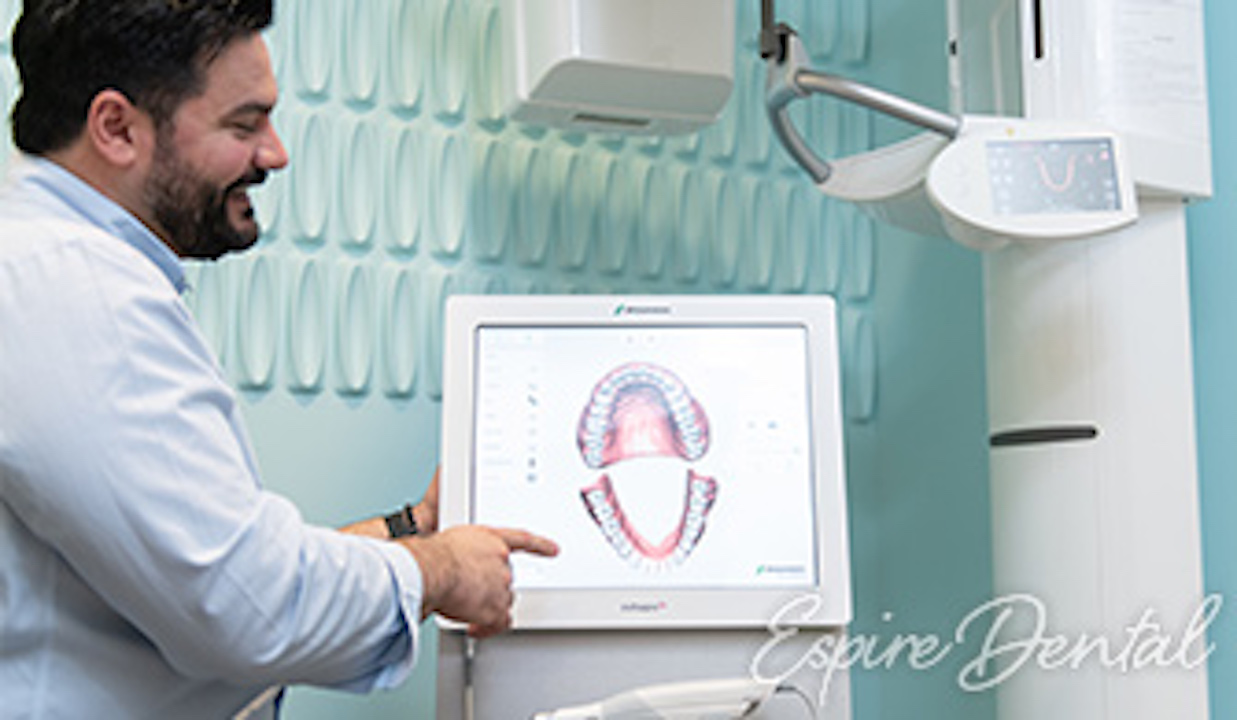
What is tartar? Is there anything you can do to prevent it? Here’s what you need to know.
You’ve learned that it’s important to practice good dental hygiene, but do you know why? Many people would say it’s to reduce plaque (and they’d be right!) but that’s only the tip of the iceberg. Tartar buildup is far more serious than plaque buildup, and it can put your health at risk.
So, what exactly is tartar? How does it get on your teeth and what happens when it does? Here’s what you need to know about best practices to prevent tartar buildup.
What Is Tartar?
Tartar, also known as dental calculus, is a rough and porous deposit that forms above or below the gumline. When bacteria and food residue build up on the surface of your teeth, it forms a stubborn, sticky film of plaque. If that plaque is not sufficiently removed, it can harden into tartar, which is much more difficult to remove and can compromise your dental and oral health.
A regular toothbrush and floss cannot break through the hard coating of tartar on your teeth, which means that any excess plaque left behind by eating and drinking will continue to grow. From a cosmetic standpoint, tartar buildup leaves your teeth looking dull and yellow. From a dental health standpoint, tartar buildup causes cavities, tooth decay, gum disease, and gum recession if left untreated.
5 Tips to Prevent Tartar Buildup
Once plaque hardens into tartar, it’s impossible to remove it through brushing and flossing alone. Removing tartar safely and effectively requires at least two years of specialized training, according to the American Dental Association, and the use of sharp scaling tools. If you have a lot of tartar buildup, make an appointment with your dentist for professional removal.
To keep your teeth healthy you have to address tartar’s underlying cause — excess plaque — and prevent it from forming in the first place. To take the best care of your teeth at home, start with these five tips:
- Brush Regularly — Brush your teeth with a tartar-control toothpaste for two minutes, twice daily. Be sure to target the hard-to-reach areas behind your teeth and on your rear molars. Studies have shown that electric toothbrushes are better at removing plaque than manual toothbrushes. For extra plaque-removing power, use an electric toothbrush that has the American Dental Association seal of approval.
- Floss Regularly — Regular brushing fights tartar buildup on the surfaces of your teeth, but don’t neglect the spaces in between them! Tartar can build up very easily in these hard-to-reach areas. In addition to brushing, floss twice daily to remove excess plaque from in between your teeth.
- Rinse with An Antiseptic Mouthwash — Rinsing with an antiseptic mouthwash removes any bacteria you might have missed after brushing and flossing, plus it leaves your mouth feeling fresh and clean.
- Avoid Sugary Foods — Did you know that the foods you eat can contribute to tartar buildup? When you eat sugary and salty foods, the bacteria in your mouth release a harmful acid that causes plaque and tartar to build up more quickly. You don’t have to give up all of your sweet treats — just be mindful of how much you’re consuming. Also, be sure to drink plenty of water during and after meals to wash away excess bacteria before you brush.
- Don’t Smoke — Smoking is a bad habit that can compromise your dental health. Numerous studies have shown that people who smoke and use other tobacco products are more susceptible to tartar buildup.
Take Charge of Your Dental Health
If you practice the aforementioned tips consistently, you’re well on your way to preventing tartar buildup and keeping your teeth healthy and strong in between cleanings. But the best way to remove tartar for good and prevent it from recurring is to visit the dentist at least twice a year.
If you’re in the Denver metro area, stop in to see us at Espire Dental! We’ll clean your teeth and offer more dental care best practices, all in a luxurious and friendly environment. Contact us today for an appointment.


